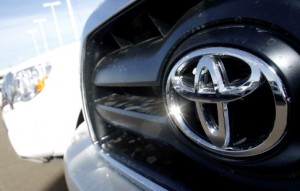U.S. DOT: Study Found No Electronic Flaws in Toyota Vehicles
U.S. Department of Transportation (DOT) today released results from an unprecedented ten-month study that found no electronic flaws in Toyota vehicles capable of producing the unintended acceleration in Toyota vehicles.
On Maui, Toyota remains the top selling auto brand, garnering almost one-third market share in 2010, according to the 4th Quarter Hawaii Auto Outlook.
“We hope this important study will help put to rest unsupported speculation about Toyota’s ETCS-i, which is well-designed and well-tested to ensure that a real world, un-commanded acceleration of the vehicle cannot occur,” Toyota said in a statement today in response to the findings of the National Highway Traffic Safety Administration (NHTSA).
In 2009 and 2010, Toyota recalled nearly eight million vehicles as part of the sticky pedal and pedal entrapment recalls. Toyota also paid $48.8 million in civil penalties as the result of NHTSA investigations into the timeliness of several safety recalls last year. Across the industry, automakers voluntarily initiated a record number of safety recalls in 2010.
The NHTSA launched the study last spring at the request of Congress, and enlisted NASA engineers with expertise in areas such as computer controlled electronic systems, electromagnetic interference and software integrity to conduct new research into whether electronic systems or electromagnetic interference played a role in incidents of unintended acceleration.
The two mechanical safety defects identified by NHTSA more than a year ago – “sticking” accelerator pedals and a design flaw that enabled accelerator pedals to become trapped by floor mats – remain the only known causes for these kinds of unsafe unintended acceleration incidents.
Toyota has recalled nearly 8 million vehicles in the United States for these two defects.
U.S. Transportation Secretary Ray LaHood said, “We enlisted the best and brightest engineers to study Toyota’s electronics systems, and the verdict is in. There is no electronic-based cause for unintended high-speed acceleration in Toyotas.”
“NASA found no evidence that a malfunction in electronics caused large unintended accelerations,” said Michael Kirsch, Principal Engineer at the NASA Engineering and Safety Center (NESC).
While NASA and NHTSA have identified no electronic cause of dangerous unintended acceleration incidents in Toyota vehicles or any new mechanical causes beyond sticking pedals and accelerator pedal entrapment, NHTSA is considering taking several new actions as the result of today’s findings, including:
- Propose rules, by the end of 2011, to require brake override systems, to standardize operation of keyless ignition systems, and to require the installation of event data recorders in all passenger vehicles;
- Begin broad research on the reliability and security of electronic control systems;
- Research the placement and design of accelerator and brake pedals, as well as driver usage of pedals, to determine whether design and placement can be improved to reduce pedal misapplication.
“While today marks the end of our study with NASA, our work to protect millions of American drivers continues,” said NHTSA Administrator David Strickland. “The record number of voluntary recalls initiated by automakers last year is also very good news, and shows that we can work cooperatively with industry to protect consumers.”











